What is Aspie Power?
“Aspie”, is a slang term used to refer to someone with Asperger’s Syndrome. Aspergers was a diagnosis adopted in the 1980’s to describe someone on the high functioning side of the Autism Spectrum. We essentially have Autism’s extreme sensitivity, fast visual minds, fixation on patterns, compulsive behaviors, and social and communication challenges, but we’re fully verbal and able to function as independent adults.
Recently the diagnosis “Aspergers” was abandoned and we were all re-diagnosed as just having Autism. At first I was mad about this. I wanted to be clearly differentiated from my nonverbal Autistic brothers and sisters. But now I’m proud to be officially part of the Autism community, and I want to overtly recognize that the skills and challenges Autistic people possess differ only by degree. It is a “spectrum”, as they say. And I can now say that I am proud to be on it. And so I am adopting the term “Aspie” to refer to any person on the Autism Spectrum.
“Power”, I learned in 10th grade Government class, is defined as “the ability of one person to get another person to serve the will of the first person.” To me, I widen this definition to just mean the ability to create, to make change, to influence the world. Those of us with “disabilities” (much like other disenfranchised groups) are often seen to have less power. Our current society’s dominant groups and systems overtly disempower us through discriminatory words, actions, laws, and media images. Throughout history these minority groups have organized to combat this discrimination and reclaim their political and cultural rights. So consider “Aspie Power” the Autistic person’s equivalent of “Black Power,” “Women’s Empowerment,” and “Gay Pride.”
This empowerment starts in the hearts and minds of every Aspie. We first have to combat the engrained belief that we are broken, inferior, freakish or disabled. As Temple Grandin’s mother told her as a child, we are “different, not less”. We must embrace and celebrate our identity in order to fully harness the special gifts and talents that have much to offer the world. I believe this mental shift will lead us to highly fulfilling relationships, careers, and lifestyles.
I want to be careful to acknowledge that I don’t believe Aspies are superior. When I say I believe we have “super powers”, I in no way want to imply that other people don’t. I am clear that everyone has unique gifts to this world and I’ve spent an enormous part of my life cultivating those powers in all different kinds of people. I want only for Aspies to take their rightful place along side other powerful people. And to see us harness our unique gifts to create the lives, and world, we want.
Autism and Addiction: A Lecture
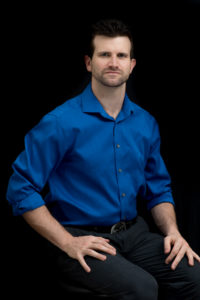 Thursday Jan 12th, 7:30pm
Thursday Jan 12th, 7:30pm
Austin Center for Recovery
4110 Guadalupe St #635, Austin, TX
Open to all
The Austin Center for Recovery is located on the Austin State Hospital campus off Guadalupe just north of 38th 1/2. Enter off Guadalupe and take your first right, and building #635 is the third building on your left.
Will be streamed live at www.facebook.com/lovinart
How to Love Your Autistic Self
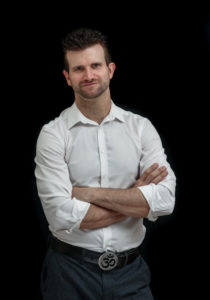 Thursday, December 8th, 7pm
Thursday, December 8th, 7pm
The Om Center, 5501 N Lamar, 78705
Open to all!
Autistic Intimacy: Different Not Less Video
In this lecture, I dispel the myth that Aspies are in anyway bad at intimacy and connection. Indeed it is one of our super powers. I give practical tips for Aspies on how to use this power to build their relationships, and also teach non-Aspies how to better relate with us and go deeper in their own connections. The Q&A also touches on diagnosis’s, the role of toxicity, mindfulness, and astroprojection.
How Autism Makes Me Better at Connection
By Joe Carr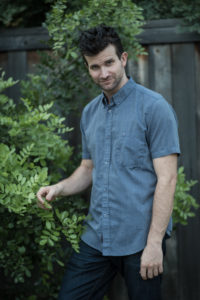
It has been said that Aspies (people with autism) are “bad at connection”. Because we often don’t understand social cues, facial expressions, or nuanced language, we come off as cold or disconnected. We frequently experience high anxiety in social situations, leading us to avoid them all together and appear to be “loners”. We speak without filters, bluntly saying what we think, and then we’re viewed as uncaring about others’ feelings. And sometimes we’ll talk endlessly about a certain topic without noticing that others aren’t interested, and then we’re judged as boring or obnoxious.
I have found that each one of these behavior traits is actually evidence that we are extremely gifted at connection.
One of the strongest attributes of autism is our heightened sensitivity. This sensitivity does not merely extend to sight, sound, smell and touch, but it’s also energetic. We feel other people’s emotions, energies, and intentions. We’re anxious in social situations because we become overwhelmed with the sensation of feeling everyone. Not only do we receive energy, but we also transmit it. So if we’re in a good mood, everyone around us may feel their spirits lifted. And if we’re in a bad mood, the whole room may feel agitated. This can create a feedback loop, where an Aspie is feeling him or herself as well as others with increasing intensity, leading to a melt down.
Aspies have the powerful innate ability to feel another person deeply, and to have them feel us. Is this not the very definition of connection? The problem is, our society teaches people to relate using words, insinuation, unspoken social cues, and body language. However, these methods of communication aren’t always consistent with a person’s true meaning. In short, people don’t always speak the whole truth. Like when someone says, “I’m fine”, when they are not actually fine. The person may actually believe they are fine, but when a person’s words don’t match what we’re feeling from them, we Aspies can get confused and think we’re crazy. Because we haven’t been taught to trust our feelings, we believe people’s words and then become gullible or naïve. We spend immense energy trying to use our heads to interpret words and facial expressions, when it would be more effective to use our bodies to feel the other person and relate from that place.
When I learned to trust my feelings and use mindfulness practices to be more aware of the energy I am sending and receiving, my social and dating life exploded. I found people that wanted real, honest connection, who appreciated my unfiltered honesty. An Aspie’s willingness to speak the real truth makes vulnerability come more naturally to us than it does to most allistic (non-autistic) people. In relationship, vulnerability is the only pathway to real intimacy, and our ability to honestly say what’s going on for us can create deep connection quickly.
The problem here, is Aspies are used to being judged for what we think and feel. Growing up, we were frequently given the message that we were “too much”, “too intense”, or “over-sensitive” implying something is wrong with our feelings. So despite our natural ability to share our experience, we need to know that we’re not going to be judged or abandoned because of what we feel.
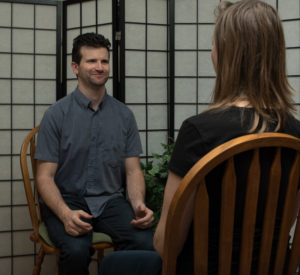 Our intensity of attention allows us to focus on one task for many hours-sometimes to an obsessive degree. I found that when I focus this attention on another person, they feel it powerfully. It can be overwhelming for someone who isn’t prepared to be seen at that level, but my close friends and intimate partners say my attention feels amazing. Learning to cultivate this attention has led to a rewarding career as a life coach and teacher. Now people hire me to see deeply into them and draw out their own inner truths.
Our intensity of attention allows us to focus on one task for many hours-sometimes to an obsessive degree. I found that when I focus this attention on another person, they feel it powerfully. It can be overwhelming for someone who isn’t prepared to be seen at that level, but my close friends and intimate partners say my attention feels amazing. Learning to cultivate this attention has led to a rewarding career as a life coach and teacher. Now people hire me to see deeply into them and draw out their own inner truths.
My successful relationship and professional skills are not despite my autism, they are because of it. I am not the exception. After coaching and leading workshops for other Aspies, I am clear that autism is a universally powerful tool for deep intimacy and connection. We just have to find the right approach.
So here’s the recipe. Aspies need to cultivate our ability to relate through our feelings at the body level, and let go of these attempts to use our heads to interpreting words and facial expressions. By trusting our intuition and connecting with a person from that place, we will quickly identify who is open to having deeper connection and who isn’t. We need to steer away from those only interested in superficial relating and accept that they are not willing to go as deep as we need to. By showing people our full intense selves, we we will magnetize those that are starving for real vulnerability, intimacy, and connection, which is so rare in a society dominated by consumerism, insecurity and façade.
Plus we need to learn how to calibrate. That is, use our ability to feel another person to intuitively know when we’re sharing too much, gone on a little too long, or when someone needs a different approach. The only thing required for this skill is to trust that you do actually know. and then a lot of practice. When you’re with someone and you get the notion that something doesn’t feel right, take a breath, feel into them, and trust whatever instinct arises. You could ask them what’s happening for them, or offer to change the subject, speed, or nature of the conversation. Or you could just name that you’re feeling something is off and give them space to say what is there. Like anything the more you try it, the better you’ll get.
For non-Aspies, there is so much available in connection with us! You’ll find an honesty, loyalty, and depth of feeling that is beautiful and rare. Here are my suggestions for how to make the most of your relationship with an Aspie. Come without judgment, try to stay open to feeling and being felt, and believe what we say. Be prepared to be a little uncomfortable with the depth of our honesty or emotion. Appreciate our willingness to tell the real truth, even if it doesn’t come out as calibrated or nice as you might be used to. And whatever you do, accept and validate our experience even if you don’t understand or agree with it, and know that we will do the same for you.
I believe that by cultivating autistic intimacy, we can create a society that is more open to the depths of emotion and energetic connectedness, which are a fundamental part of the human experience. Everyone could benefit from being more open, honest, attentive, and sensitive, to absorb the nourishing love available from feeling and letting others feel you.
Deep, intimate connection is one of the many gifts autism brings to the world. So let’s enjoy it.
Why don’t I belong?
Last weekend, I had a powerful experience of healing and empowerment through being triggered, and then supported, in one of my most painful spots.
I went to a meditation group I’ve started attending regularly. There’s something powerful there I want, even though the structure is very challenging for me. In order to create a sense of focus and power, we’re asked to sit in chairs, upright, legs uncrossed, and sing songs in another language for several hours. Of course we’re welcome to get up and leave the room whenever we need to, but that is what’s expected if you’re going to be in the room.
After much resistance, I found it more bearable if I put all my energy into the singing. Channeling God and spiritual energy like one would in a black church. For the first few hours I felt upbeat and grateful. Then I got triggered when a leader suggested I sing more quietly, and only in my lower register.
I quickly went into my victim. I heard that I am too much. Too loud. Too messy. Only welcome if I conform to narrow standards. My autism makes sitting still for a long period of time a physical impossibility. Unless I move regularly, the anxiety builds up in me to a literal breaking point. Also it actually hurts for me to sing in my lower register, similar to trying to sing too high. And I feared that if I couldn’t release the anxiety in my body through intense singing then I just wouldn’t be capable of being there. And so for the bagillionth time in my life I felt cast out, excluded, and judged for my inability (perceived as unwillingness) to conform.
My inner child is sensitive to this dynamic, because I was actively excluded as a child. I faced visceral hatred from kids and adults everywhere I went, and I had no idea why. At the time I had no way to understand or change my behavior, leaving me hopeless that I’d ever have friends or belong anywhere. And now, I enter most groups expecting to be excluded at some point, and this experience gave ammunition to this constant (even if unreal) fear.
School and church were hell for me. Confining the voice and movement of an autistic person (or really any child) is equivalent to torture, and the more I was punished for not obeying, the more I believed I was broken. Theatre, dance and music were my only solace. On stage, I belonged. So perhaps this is why my perceived limitation on singing was especially triggering.
I just cried. I cried and cried at this feeling of non-belonging. Like I’ll always be too much for anyone to handle. Like it’s only a matter of time before I’m kicked out, or expected to do something I’m incapable of. I felt angry at neurotypical (non-autistic) people and institutions that think these standards are so easy to follow without sensitivity to how much harder it is for some of us. “Everyone has a hard time staying in their seat” they tell me. Which I’m sure is true, and yet it minimizes the fact that it is excruciatingly harder for people with my brain type.
I went off by myself and laid there curled up in a ball in tears, and asked God why I must go through this. And I felt a deep knowing that I am meant to help others find belonging. That there are many others like me, feeling cast out, like they’re the only ones who don’t fit in. And yet everyone feels this way sometimes. The rules and systems of school and church were designed to create alienation. It impacts some of us worse than others, but it affects us all.
I am determined to change this. I will create accepting communities where people of all neurological styles are welcome. Where there’s freedom of movement and expression for children and energetic people and anyone else who wants it. Where it’s never assumed that something is easy or normal and everyone’s contribution is valued.
This was the commitment I left with. I am grateful to the group for giving me a safe space to process some of this pain and reconnect with my purpose. I intend to go back and revisit this tender spot in me and potentially find healing as I discover that I do actually belong there. Perhaps I’ll even help educate them about the autistic experience.
I will continue to hold and love my inner child, and protect him from people who truly don’t value his energy and spirit, and surround him with people who do. And I promise to do this for other children, Aspies, and neurodivergents everywhere.
We do belong. We belong, together.
An Aspie Review of “The Accountant”: From Victim to Super Hero
By Joe Carr of aspiepower.com 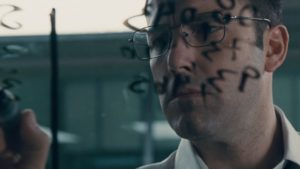
Like The Accountant’s hero, Christian Wolf, my review of the film is neither wholly good or bad. I immensely enjoyed the movie and consider it a step forward for the autism community becoming more understood by the general public. As an autistic person myself, I want to add my perspective.
First of all, I love the two primary themes: victimhood is a choice and autism brings powerful gifts that our society needs. I appreciate the use of the “super hero” archetype to characterize the unique abilities of autistic people, which is far better than the “retarded” or “freak” archetypes. I recognize that much like the freak perspective, the super hero role still creates a sense of otherness. But I know firsthand that feeling other is nothing new for any autistic person. I prefer this film’s holistic representation of an Aspie that is superior in certain areas while challenged in others.
Most criticism of this movie centers around the claim that it portrays autistic people as deviant, separate, inhumane and violent. I saw nothing inherently wrong with the Christian Wolf character; I saw a brilliant, well-intentioned man doing his best in a society that was not built for him. His violence is a result of his childhood trauma, not his autism. His non-autistic brother is just as deadly, which stems from their shared childhood experience, not their neurology.
There’s also an ongoing meme that (non-autistic people) should never try to tell a story about autism, but I disagree. The book Neurotribes by neurotypical author Steve Silberman is one of the best books on autism I’ve read, and he’s been harshly judged for discussing a topic that doesn’t directly affect him. I applaud any neurotypical person who puts their energy and creativity towards telling our story. I call these people allies, and the last thing we should do is punish an advocate who sticks out their neck in a conscious, well-intentioned way. Obviously, the film’s director, Gavin O’Connor, did careful research to make his portrayal of autism accurate and respectful.
The victimhood discussion is a tricky one. I believe that the biggest thing holding back the autistic community is the prevailing victim story. As a trainer and coach of fellow Aspies, many of my clients have a deep-seated belief that they’re broken, disabled, or cursed. I see parents weeping over the diagnosis of their child like it’s a horribly unfair tragedy that is ruining their lives. I will be the first to tell you that there are very real challenges autistic people and their families face, and that there are systems and people in the dominant culture that harm us.
However, it is our choice to see ourselves as victims and spend our energy complaining, blaming, and living life “despite” our condition. I advocate choosing to see ourselves as empowered and recognize that all challenges are opportunities to become stronger. We can take steps to lessen our challenges and change societal barriers while simultaneously accepting that we are perfect just as we are.
I look forward to more powerful portrayals of my fellow Aspies. And much like the evolution of media images of characters from other marginalized groups, I expect to quickly see movement away from stereotypical and deviant, to diverse, nuanced, and brilliant. I welcome The Accountant as a step in the right direction.
